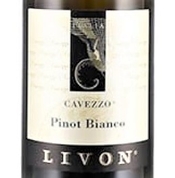Regardless of what you’re eating this summer, a white wine from Collio will fit the bill. This small region with fewer than 4,000 acres makes a broad range of white white wines extending from lively and fresh examples to ones substantial enough to stand up to a steak. The Italians have known the quality of wines from Collio for decades; it was among the first areas to be awarded DOC status in 1968.
Collio, sometimes called Collio Gorizia, is tucked away in Friuli Venezia Giulia, a region in the northeast of Italy, bordering Slovenia. It’s an apt name for the DOC—Collio comes from the Latin, collis, for hill—because almost all of the vineyards here are on hillsides. Eighty-five percent of Collio’s production is white, with Pinot Grigio and Sauvignon Blanc accounting for half the plantings. A variety of other grapes, including Pinot Bianco, and two, Friulano and Ribolla Gialla, capable of making heftier wines, also make noteworthy bottlings here.
Ribolla Gialla, a late ripening variety, is typically the last white grape harvested, sometimes even after the first of the reds are ripe. Despite that, it holds its acidity exceptionally well. Collio is an ideal locale for this grape because it must be planted on hillsides to achieve its potential. It’s a misunderstood variety because it can be transformed into two very different styles of wine. The so-called crisp and lively “classic” style accounts for about 80 percent production. The remaining 20 percent is so-called “orange” wine, which is white wine made in the red wine tradition with extended skin contact, usually by small estates. And though Collio doesn’t produce a lot of sparkling wine, almost every producer that does make one uses Ribolla Gialla for that purpose.
Collio’s soil, a mix of marl and sandstone, resulting from the area being underwater millions of year ago, is called ponca locally. Growers attribute a distinct minerality in the wines to this unique soil. It is a little surprising to walk through hillside vineyards and find fossilized shells.
Nestled between the Mediterranean and the Alps, the climate is cool, rainy and windy, which prevents grapes from becoming over ripe and helps explain the wonderful brightness in the wines.
Here are a trio of wines that show the incredible range of Collio DOC whites.
 Livon, Pinot Bianco “Cavezzo” 2018:
Livon, Pinot Bianco “Cavezzo” 2018:
Pinot Bianco often makes light, innocuous wines. Not this one. Livon’s 2018 Cavezzo has weight and an alluring texture. A hint of grapefruit-rind bitterness in a lively finish enhances its appeal. This stylish Pinot Bianco has surprising complexity and could redefine the category for you. It would be great as a stand-alone aperitivo, but would also be a good choice for simple grilled fish.
($40, 92 Points)
 Russiz Superiore, Friulano 2019:
Russiz Superiore, Friulano 2019:Marco Felluga, the man in charge at Russiz Superiore, is a good name to remember for top-notch wines. In addition to a seductive texture, this 2019 Friulano has good power without a trace of heaviness. Nuances of orange-rind poke through and complement its fruitiness and spice. A small portion (about 15%) of the wine was fermented in oak barrels, which adds complexity without a trace of oakiness. Lively acidity keeps his weighty white fresh. This Friulano would be a fine complement to the meatiness of grilled red snapper.
($27, 93 Points).
 Colmello di Grotta, Ribolla Gialla 2018:
Colmello di Grotta, Ribolla Gialla 2018:
This is a spritely, classically framed Ribolla Gialla that was fermented and aged in stainless steel and amphorae without skin contact. It captures your attention with a gorgeous array of white flowers and honeysuckle-like fruitiness, but without sweetness. This beguiling wine has good density and a hint of saline-like bitterness in the finish. It would be a good choice for linguine in a clam sauce or other hearty seafood.
($17, 93 Points).
